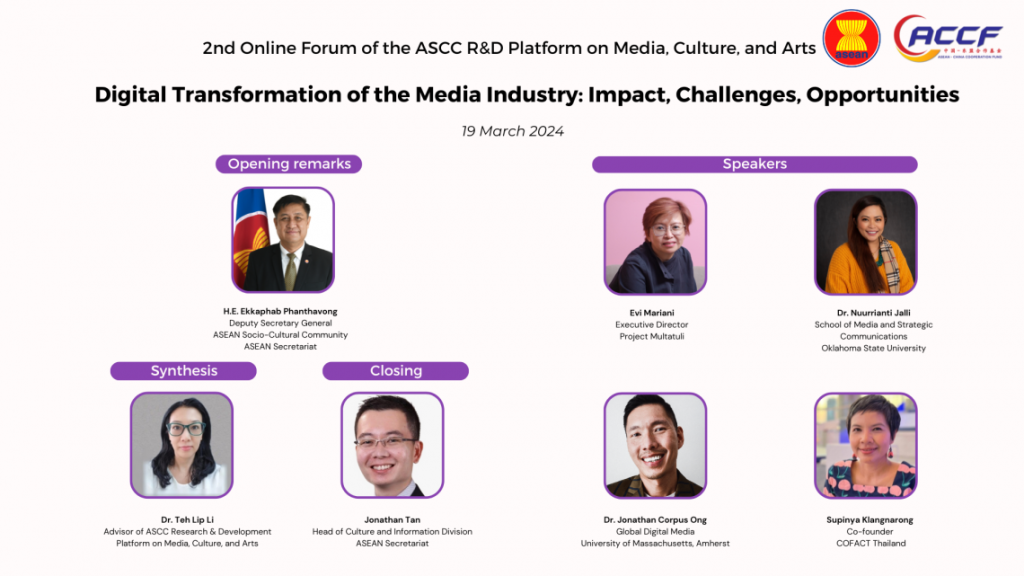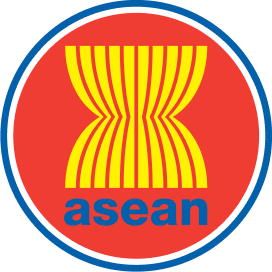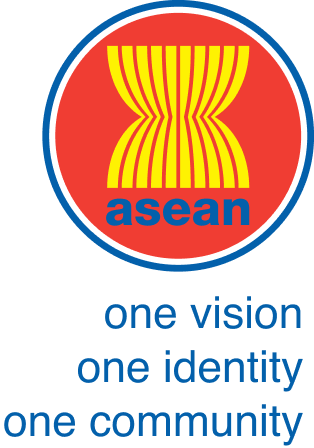



 JAKARTA, 19 March 2024 – Today, the Second Online Forum of the ASEAN Socio-Cultural Community (ASCC) Research Platform on Media, Culture and Arts convened to discuss the digital transformation of the media industry under the theme “Digital transformation of the media industry: Impact, challenges and opportunities”.
JAKARTA, 19 March 2024 – Today, the Second Online Forum of the ASEAN Socio-Cultural Community (ASCC) Research Platform on Media, Culture and Arts convened to discuss the digital transformation of the media industry under the theme “Digital transformation of the media industry: Impact, challenges and opportunities”.
Experts and practitioners from media and information sectors engaged in insightful discussions, addressing pressing issues such as disinformation, the role of research, and strategies to mitigate emerging challenges. The forum is an activity under the ASCC Research and Development Platform, initiated by ASEC and supported by the ASEAN-China Cooperation Fund. The platform aims to produce flagship reports and policy briefs on the future of work with the support of the advisory team comprising Dr Teh Lip Li and Amalia Hayati.
In his welcoming address, Deputy Secretary-General for ASCC Ekkaphab Phanthavong highlighted the profound impact of digital transformation on the media industry in the ASEAN region. Emphasising the region’s rapid digital growth – with 125,000 new internet users daily and a projected US$1 trillion contribution to regional GDP over the next decade – he underscored the resilience shown by ASEAN economies amid the COVID-19 pandemic through embracing digitalisation.
He acknowledged challenges such as the proliferation of fake news and online safety which requires collaborative efforts to advance inclusive and sustainable development. He highlighted ASEAN’s initiatives to combat disinformation such as the Framework and Declaration on Minimising the Harmful Effects of Fake News, the Task Force on Fake News and the Core Values on Digital Literacy, and encouraged further collaboration between the public and private sectors, investment in digital infrastructure, promotion of media literacy, and support for ethical digital technology use.
In their presentations, Evi Mariani, Executive Director of Project Multatuli, a public journalism collective based in Indonesia, discussed the media’s role in mitigating the harmful effects of fake news, while Dr. Nuurrianti Jalli, Assistant Professor of Professional Practice of the School of Media and Strategic Communications of Oklahoma State University examined therole of Artificial Intelligence (AI) and behavioural science in mitigating the harmful effects of fake news and polarisation in public discourse.
In the second session, Dr. Jonathan Corpus Ong, Associate Professor of Global Digital Media, of the University of Massachusetts Amherst, shared his views on how to strengthen local and transnational networks in response to fake news. Supinya Klangnarong, co-founder of COFACT Thailand, underlined the importance of multi-stakeholder approach in responding to the fast-evolving media landscape. She emphasises on the responsible use of AI while ensuring trust and safety in content moderation and data management.
Overall, the speakers stressed the importance of media and information literacy and investing in local talents in AI development, reiterated the need for multi-stakeholder engagement and more ASEAN-led research on AI and ethical tools for fact-checking. They also highlighted the significance of investing in slow, quality journalism and building trust between media and the public.
In her summary, Dr. Teh Lip Li highlighted the pandemic’s acceleration of digitalisation and its profound impact on various segments of society. She underscored concerns related to digital infrastructure, skills, privacy, trust, disinformation, hate speech, security, and sustainability, stressing the interconnected nature of these challenges across ASEAN. She further emphasised the need for multi-stakeholder networks to foster inclusive and sustainable development.
In closing the event, Jonathan Tan, Head of Culture and Information Division of ASEC highlighted the sustained efforts by the ASEAN Information sector to fight fake news through advocacy, awareness campaigns, as well as promoting media and digital literacy. He reinforced that the fight against fake news can be backstopped by optimising the use of digital tools and technology, and through developing effective strategic communications and promoting attention literacy.








